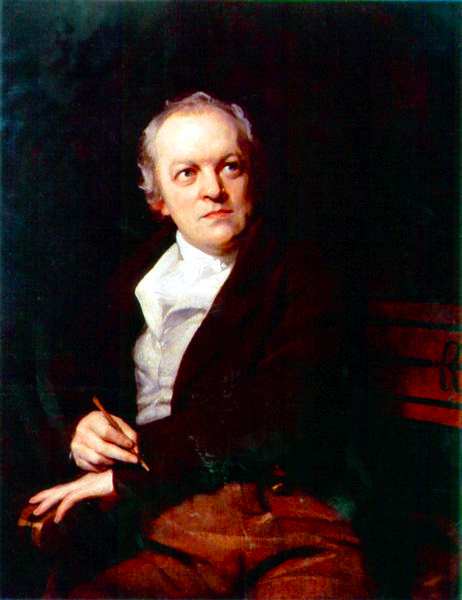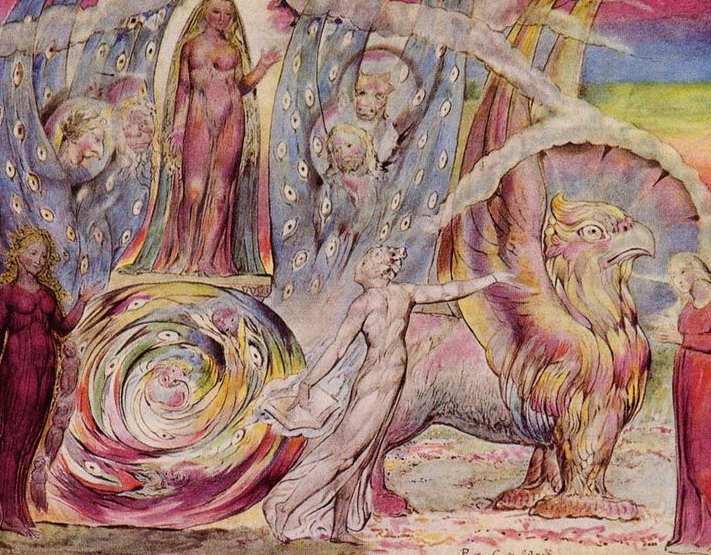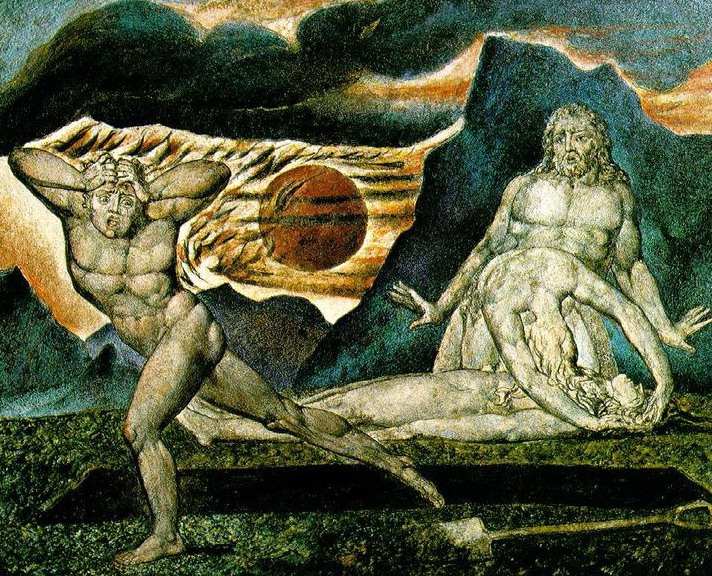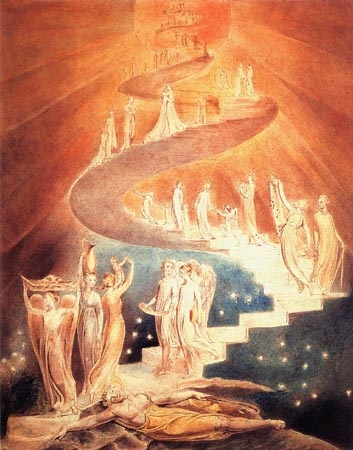1757
Naşterea lui William Blake, poet şi artist britanic

Blake William Phillips de Thomas
"Nici o pasăre nu are zbor prea înalt, dacă nu zboară cu aripi proprii." William Blake
William Blake (n. 28 noiembrie 1757 – d. 2 august 1827) a fost un poet, vizionar, pictor şi tipograf englez. În esenţă nerecunoscută în timpul vieţii sale, opera diversă şi profundă a lui William Blake este astăzi considerată esenţială şi semnificantă atât în istoria poeziei cât şi a artelor vizuale.
Într-un sondaj de opinie organizat de BBC în anul 2002, Blake a fost votat al 38-lea pe o listă conţinând 100 dintre cei mai importanţi britanici ai tuturor timpurilor.


Blake îşi ilustra personal cărţile sale de poezie, pline de un misticism de inspiraţie creştină. Încă de mic copil, el a avut viziuni populate de spirite şi îngeri şi afirma că a luat lecţii de pictură de la un înger. Apariţiile entităţilor supranaturale au fost apoi o constantă a vieţii şi operei sale. Blake spunea că îl vedea pe Iisus Cristos care îi dicta ceea ce el scria apoi: "Eu nu am fost decât cel care a scris. Autorii sunt de dincolo" (citat din poemul Ierusalim). În ceea ce priveşte desenele sale, el afirma că acestea sunt reproduceri ale imaginilor care îi apăreau şi îl inspirau. A trăit mereu între două lumi, cea subtilă şi cea fizică şi a reuşit să prezinte aceste două realităţi paralele în opera sa şi prin personalitatea sa excepţională. Cele mai sigure mijloace de cunoaştere erau pentru el intuiţia şi imaginaţia.A devenit faimos ca gravor pentru un set de 21 de imagini care ilustrau Cartea lui Iov, din Vechiul Testament, compozitii migaloase si socante care au impresionat. Dar a fost nevoit sa lucreze si pentru alti artisti si gravori, asa ca multe dintre lucrari au aparut pe piata purtand numele altora, multe s-au pierdut. In buna parte aceasta lipsa de notorietate s-a datorat si lipsei de interes pentru bani a lui Blake, acesta preferand subiectele stranii, care il atrageau, in locul celor cerute de piata.
Opera literară
1783: Schiţe poetice ("Poetical Sketches");
1794: Cântecele experinţei ("Songs of Experience");
1789: Cartea lui Thel ("The Book of Thel");
1790: Căsătoria cerului cu iadul ("The Marriage of Heaven and Hell");
1791: Revoluţia franceză ("The French Revolution");
1793: Viziunile fiicelor Albionului ("Visions of the Daughters of Albion");
1793: America: carte profetică ("America: a Prophecy");
1794: Europa: carte profetică ("Europe: a Prophecy");
1794: Cartea Urizen ("The Book of Urizen");
1804: Milton ("Milton").

Deşi privit ca un pictor, el nu a folosit vopsea de fapt în sine, preferând mereu alte mijloace de exprimare.



On Another's Sorrow
by William Blake
Can I see anothers woe,
And not be in sorrow too.
Can I see anothers grief,
And not seek for kind relief.
Can I see a falling tear,
And not feel my sorrows share,
Can a father see his child,
Weep, nor be with sorrow fill'd.
Can a mother sit and hear
An infant groan an infant fear --
No no never can it be.
Never never can it be.
And can he who smiles on all
Hear the wren with sorrows small,
Hear the small birds grief & care,
Hear the woes that infants bear --
And not sit beside the nest
Pouring pity in their breast.
And not sit the cradle near
Weeping tear on infants tear.
And not sit both night & day,
Wiping all our tears away.
O! no never can it be.
Never never can it be.
He doth give his joy to all.
He becomes an infant small.
He becomes a man of woe
He doth feel the sorrow too.
Think not, thou canst sigh a sigh,
And thy maker is not by.
Think not, thou canst weep a tear,
And thy maker is not near.
O! he gives to us his joy,
That our grief he may destroy
Till our grief is fled & gone
He doth sit by us and moan
by William Blake
Can I see anothers woe,
And not be in sorrow too.
Can I see anothers grief,
And not seek for kind relief.
Can I see a falling tear,
And not feel my sorrows share,
Can a father see his child,
Weep, nor be with sorrow fill'd.
Can a mother sit and hear
An infant groan an infant fear --
No no never can it be.
Never never can it be.
And can he who smiles on all
Hear the wren with sorrows small,
Hear the small birds grief & care,
Hear the woes that infants bear --
And not sit beside the nest
Pouring pity in their breast.
And not sit the cradle near
Weeping tear on infants tear.
And not sit both night & day,
Wiping all our tears away.
O! no never can it be.
Never never can it be.
He doth give his joy to all.
He becomes an infant small.
He becomes a man of woe
He doth feel the sorrow too.
Think not, thou canst sigh a sigh,
And thy maker is not by.
Think not, thou canst weep a tear,
And thy maker is not near.
O! he gives to us his joy,
That our grief he may destroy
Till our grief is fled & gone
He doth sit by us and moan


Grădina iubirii
de William Blake
Am mers în Grădina iubirii.
Şi am văzut ce nu văzusem nicicând:
O Capelă stătea ridicată,
În verdeaţa în care crescusem jucând.
Intrările Capelei stăteau ferecate,
Şi "Să nu" zăcea scris peste poartă;
Aşa m-am întors la Grădina iubirii,
Cu dulcile-i flori încărcată;
Şi am văzut-o grea cu morminte,
Şi-n loc de flori, pietre de căpătâi;
Pioşi treceau preoţi în negre robe,
Legând în trandafir sălbatic dorinţa-mi dintâi.


































Niciun comentariu:
Trimiteți un comentariu